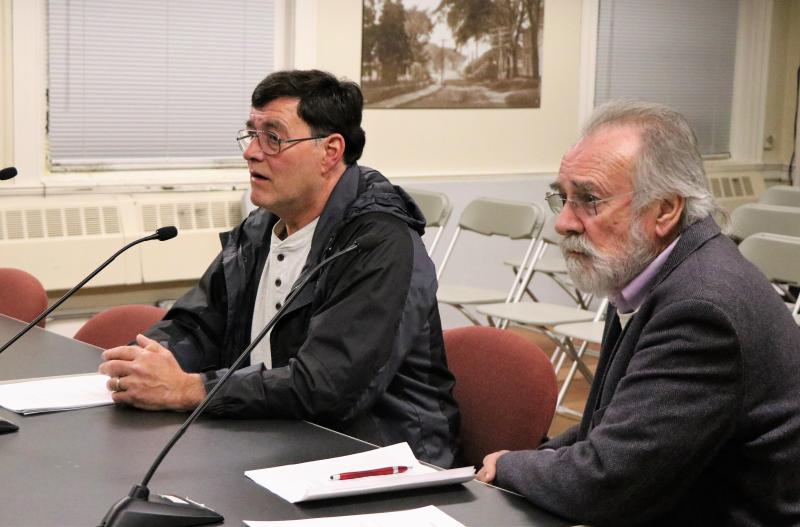WCTV plans for uncertain future
The Board of Selectmen signed a yearly contract with WCTV at its April 9 meeting, but the station’s future is still in question as Federal Communications Commission policies that fund local public access television are in flux.
Local access television stations are funded through a franchise fee cable companies pay to municipalities as compensation for using town-owned land to build the necessary infrastructure, like cable lines, to deliver cable service to residents.
The federal Cable Communications Policy Act, passed in 1984, governs these fees, which are used to fund public, educational, and government access (PEG) programming.
Under the proposed rule change, cable companies could be allowed to offset franchise fees by deducting certain “in-kind services” from the total granted to cities and towns. However, exactly what cable companies could be allowed to count as “in-kind” is a complete mystery.
Currently, WCTV receives about $200,000 in funding each year from fees paid by Comcast and Verizon. The station is not funded by the town.
Selectman Alan Slavin reported that he discussed the potential rule change with Lieutenant Governor Karyn Polito earlier on Tuesday, and encouraged her to do everything possible to lobby against the rule change.
“I’m personally not sure what the financial situation is going to be for any of the cable access channels in Massachusetts or the United States,” Slavin said, expressing concern that if the station loses a significant portion of its funding, the programming and staffing will have to change dramatically.
According to Slavin, there are several lawsuits challenging the rule change that are currently pending at the national level.
WCTV Executive Director Steve Ruiz and Peter Barrow, a member of WCTV’s Board of Directors, met with Senator Ed Markey last week as part of a round table with more than 80 local access stations.
“The thing we brought away from that was the fight is on,” Ruiz said. “They’re not done. They’ve still gotta get past the senate.”
Ruiz said that now, those invested in local television are working to motivate senators and mayors to advocate against the rule change.
While hoping for the best, Ruiz is preparing for the worst.
If the FCC rule change goes through, the Board and WCTV will revisit the agreement.
“We do have contingencies in place,” Ruiz said. “We’ll find ways of working around it. We’ll get money from grants. There’s a lot of things we can do.”














